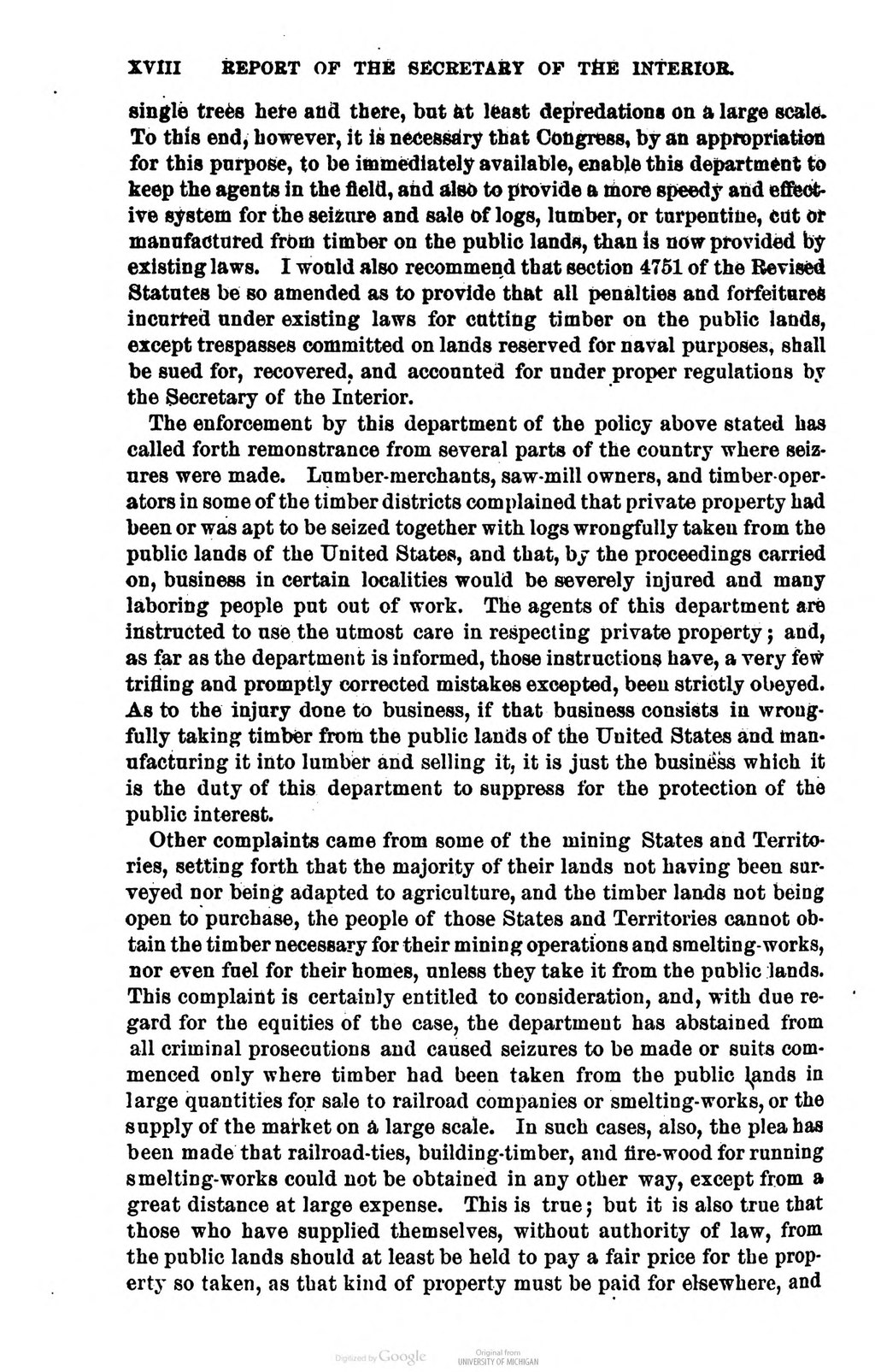single trees here and there, but at least depredations on a large scale. To this end, however, it is necessary that Congress, by an appropriation for this purpose, to be immediately available, enable this department to keep the agents in the field, and also to provide a more speedy and effective system for the seizure and sale of logs, lumber, or turpentine, cut or manufactured from timber on the public lands, than is now provided by existing laws. I would also recommend that section 4751 of the Revised Statutes be so amended as to provide that all penalties and forfeitures incurred under existing laws for cutting timber on the public lands, except trespasses committed on lands reserved for naval purposes, shall be sued for, recovered, and accounted for under proper regulations by the Secretary of the Interior.
The enforcement by this department of the policy above stated has called forth remonstrance from several parts of the country where seizures were made. Lumber-merchants, saw-mill owners, and timber operators in some of the timber districts complained that private property had been or was apt to be seized together with logs wrongfully taken from the public lands of the United States, and that, by the proceedings carried on, business in certain localities would be severely injured and many laboring people put out of work. The agents of this department are instructed to use the utmost care in respecting private property; and, as far as the department is informed, those instructions have, a very few trifling and promptly corrected mistakes excepted, been strictly obeyed. As to the injury done to business, if that business consists in wrongfully taking timber from the public lands of the United States and manufacturing it into lumber and selling it, it is just the business which it is the duty of this department to suppress for the protection of the public interest.
Other complaints came from some of the mining States and Territories, setting forth that the majority of their lands not having been surveyed nor being adapted to agriculture, and the timber lands not being open to purchase, the people of those States and Territories cannot obtain the timber necessary for their mining operations and smelting-works, nor even fuel for their homes, unless they take it from the public lands. This complaint is certainly entitled to consideration, and, with due regard for the equities of the case, the department has abstained from all criminal prosecutions and caused seizures to be made or suits commenced only where timber had been taken from the public lands in large quantities for sale to railroad companies or smelting-works, or the supply of the market on a large scale. In such cases, also, the plea has been made that railroad-ties, building-timber, and tire-wood for running smelting-works could not be obtained in any other way, except from a great distance at large expense. This is true; but it is also true that those who have supplied themselves, without authority of law, from the public lands should at least be held to pay a fair price for the property so taken, as that kind of property must be paid for elsewhere, and
